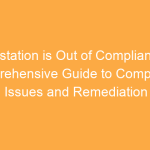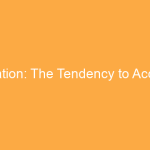In today’s digital age, data has become an invaluable asset. It is the lifeblood of businesses, governments, and individuals alike. However, with great power comes great responsibility. It is crucial to understand who owns and controls our data and how it is being used.
The concept of “los archivos son tuyos” or “the files are yours” emphasizes the fundamental right of individuals to own and control their own data. It is a principle that recognizes the value and importance of personal information and data privacy. By ensuring that individuals have ownership over their data, we empower them to make informed decisions about how it is collected, used, and shared.
Empowering individuals with data ownership also promotes transparency and accountability. When individuals know who has access to their data and how it is being used, they can hold those entities accountable for any misuse or breaches. It creates a level playing field where individuals have a say in the management and protection of their own information.
Data Ownership: A Fundamental Right
The Value of Personal Data
Personal data, including our browsing history, social media activity, and health records, holds immense value. It can be used to create targeted advertising, predict behavior, and even influence our decisions. The concept of los archivos son tuyos recognizes this value and gives individuals the right to benefit from the use of their own data.
By owning our data, we can control who has access to it and how it is used. We can prevent it from being sold or used for purposes that we do not consent to. This empowers us to protect our privacy and ensure that our data is used in a responsible and ethical manner.
The Right to Control
Data ownership empowers individuals with the right to control how their data is collected, used, and shared. This includes the right to:
- Access their data: Individuals have the right to know what data is being collected about them and how it is being used.
- Request corrections: If individuals find inaccuracies in their data, they have the right to request corrections.
- Delete their data: In certain circumstances, individuals have the right to request that their data be deleted.
Granting individuals control over their data is essential for protecting their privacy and autonomy. It ensures that they are not subject to unwanted tracking, data breaches, or the misuse of their personal information.
Data Ownership in Practice
Data Privacy Regulations
The concept of data ownership has been enshrined in various data protection regulations around the world. The European Union’s General Data Protection Regulation (GDPR), for example, gives individuals extensive rights to control their personal data, including the right to access, rectify, and erase it.
Other jurisdictions have implemented similar data privacy laws that grant individuals ownership over their data. These regulations help to ensure that individuals have a say in how their data is collected, used, and shared, and that their privacy is respected.
Privacy-Enhancing Technologies
Technological advancements have also played a significant role in promoting data ownership. Privacy-enhancing technologies, such as encryption and anonymization, allow individuals to control who has access to their data and how it is used.
For example, encryption technologies can ensure that personal data is only accessible to authorized parties, while anonymization techniques can remove personally identifiable information from data, making it difficult to identify individuals.
Benefits of Data Ownership
Enhanced Privacy and Security
Data ownership empowers individuals to protect their privacy and security by giving them control over their data. They can prevent unwanted tracking, data breaches, and the misuse of their personal information.
By owning their data, individuals can make informed decisions about who they share it with and how it is used. This reduces the risk of identity theft, fraud, and other privacy concerns.
Economic Empowerment
Data ownership can also have economic benefits for individuals. By owning and controlling their own data, they can monetize it and use it to create new opportunities and value.
For example, individuals can sell their data to market research firms, participate in data-driven research studies, or develop their own data-driven products and services.
Improved Decision-Making
Data ownership enables individuals to make better decisions about their lives and businesses. By having access to their own data, they can gain insights into their behavior, preferences, and health.
This information can help them make informed choices about their health, finances, and career, leading to improved well-being and success.
Conclusion
The concept of “los archivos son tuyos” is a fundamental right that empowers individuals with ownership and control over their data. It recognizes the value and importance of personal information and promotes transparency and accountability in the use of data.
By asserting their data ownership rights, individuals can protect their privacy, security, and economic interests. Moreover, they can contribute to a more equitable and data-driven society where power and control over personal information are balanced between individuals and data-using entities.















Leave a Comment